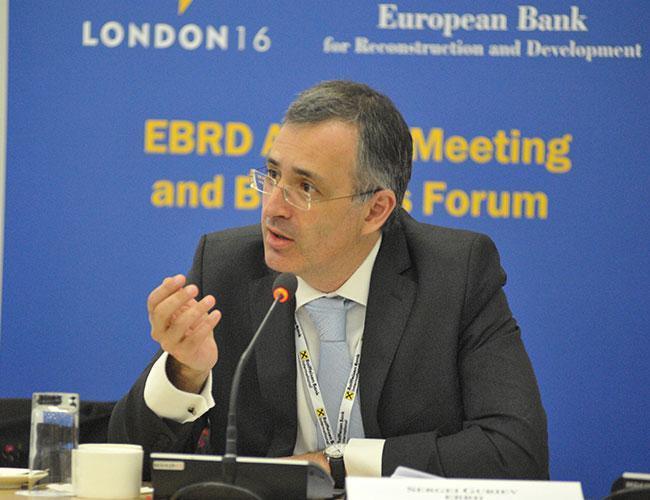
The European Bank of Reconstruction and Development (EBRD) considers developing Turkey’s economy one of its top priorities, a senior economist at the bank has said.
“It is very hard to find a place in the Turkish growth model where the EBRD is not a partner. We are very much committed to supporting Turkish growth and development,” Sergei Guriev, the bank’s chief economist, told state-run Anadolu Agency.
He underlined that Turkey is the EBRD’S largest country of operations in terms of business volume and portfolio.
Praising Turkey’s 2017 growth rate of 7.4 percent, mainly driven by the Credit Guarantee Fund and recovery in the eurozone, Guriev said the country’s economy will continue to grow at “fast rates” in 2018.
Reforms needed in labor market, taxes
The EBRD projects that Turkey will grow by 4.2 percent in 2018, below the government’s target of 5.5 percent.
“But even 4-4.5 percent is a strong growth performance in the current circumstances. We consider the Turkish economy resilient and driven by a private sector integrated into the global economy. We see many reasons to be optimistic, as the Turkish economy continues to grow,” Guriev said.
He added that the EBRD “supports structural reforms in Turkey” to help it remain competitive.
“Turkey needs to carry out reforms in its labor market, taxes and regulations, and it needs to invest in innovation, the high-value manufacturing sector and the high value-added services sector,” Guriev said.
High inflation, current account gap
The EBRD’s chief economist said that although Turkey has a number of factors supporting growth, its current account deficit and high inflation currently make it vulnerable.
Underlining that high inflation undermines the development of long-term financial instruments denominated in the Turkish Lira, Guriev said addressing this should be a priority for the government and the Central Bank.
He highlighted that the dynamic private sector – including large conglomerates as well as SMEs – is Turkey’s “most important” strength.